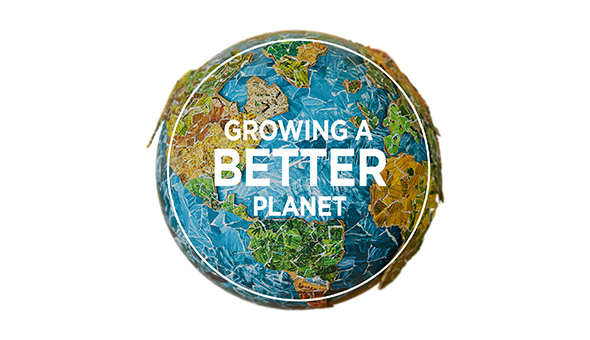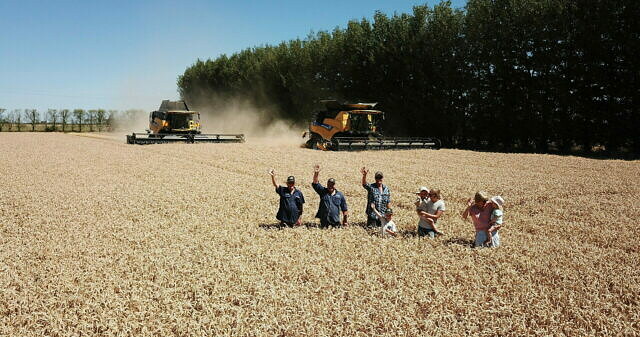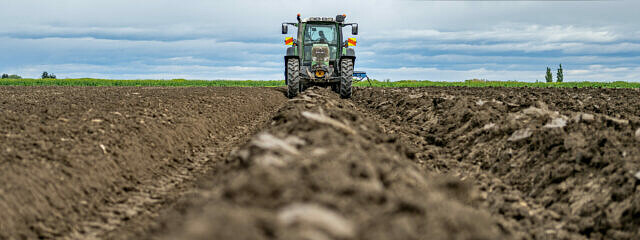Shaping the future of European beef sustainability
6th June 2024

Overview
Opinion piece by Andrea Bertaglio of European Livestock Voice

Andrea Bertaglio is a journalist specialising in sustainability, climate change and environmental issues. Since February 2022, he has been working closely with European Livestock Voice, a multi-stakeholder group of like-minded EU partners in the livestock value chain that decided to unite to bring back a balanced debate around a sector that is essential to Europe’s rich heritage and future. The organisation aims to inform the public about the social value of livestock production and its contribution to solving global challenges, offering another perspective to the ongoing debates. Hear from Andrea about how the European Roundtable for Beef Sustainability (ERBS) is addressing the multiple environmental, social and economic challenges the European beef sector is facing.
Among humanity’s main focuses is sustainability, and the European beef sector is actively striving to be at the forefront of positive change and environmental stewardship. Created in 2018 to unite the beef sector towards driving positive, measurable and credible impact, the ERBS is focused on European beef sustainability from farm to fork, and it envisions a world where all aspects of the beef value chain are environmentally sound, socially responsible and economically viable.
Sustainable beef farming needed to be addressed in a pre-competitive space. ERBS members have been working together to share knowledge, create solutions and promote sustainable beef farming systems that ensure the best quality of life for cattle. This improves the farm landscape’s health, helps tackle climate and wildlife crises and bolsters livelihoods while producing healthy, nutritious foods. The ERBS unites and coordinates sustainability programmes around a common agenda to deliver measurable and positive impact within the beef value chain, aligned to the principles of the Global Roundtable for Sustainable Beef (GRSB) and other major international bodies. All the members are committed and aligned on a shared vision and mission, reporting on the same targets and delivering positive impact on animal welfare, animal medicine, the environment and farm management.
Making positive progress in beef sustainability
The ERBS unites actors across the value chain behind the goal of achieving measurable progress to aligned targets. The diversity of European production systems is recognised, and freedom is provided to deliver progress in a way that suits the local context. Together, in an environment of pre-competitive collaboration, they arrive at pragmatic solutions to common challenges.
Key organisations work together as part of a Platform. Platforms in-country are groups of cross-sector European stakeholders from across the beef value chain who are connected formally, working together towards more sustainable beef production using the outcome targets set by ERBS on the ground with farmers. They are coordinated at the country level and can be existing organisations, programmes or schemes, or new groups from across industry, academia, government and society. Six of the largest beef-producing European countries (France, Germany, Ireland, Italy, Poland and the United Kingdom) already have an ERBS Platform, all working towards the same goal, taking locally relevant approaches with 125 activities/projects driving measurable and credible progress on beef sustainability in Europe.
Platforms apply to the ERBS for recognition, implement their activity plans, and report annually against their progress. 45% of Platform/Target combinations now show progress backed by data. More than 250,000 European farmers are involved in Platforms activities, and their mission is that all aspects of the beef value chain are recognised for delivering measurable positive impacts and have the opportunity to demonstrate sustainable farming practices in their country on a European stage.
Shaping a joint vision for the beef industry’s future
The ERBS helps suppliers implement aligned sustainability practices, highlighting the advances in sustainability in European supply chains to customers. This gives greater visibility to the meat industry’s benefits and helps to shape a joint vision for the beef industry’s future. Connecting and constructively collaborating with partners helps advance the sustainability of beef production and actively contributes to the progress being made across Europe. The ERBS recognises and reinforces national and local programmes, as Europe has diverse production systems and climates.
The aim goes beyond compliance and European value chains are committed to high animal welfare standards and driving continuous improvement. For the members of the ERBS, animal health and welfare is a fundamental component of the overall sustainability of beef production. Providing cattle with an environment where they can thrive has a positive impact on productivity and output, which in turn supports economic viability and a reduction in GHG emissions. To achieve this, ERBS members have agreed on four action areas focusing on eight outcome targets to align all Platforms within European countries.
In the environmental field, an intensity reduction of 15% in greenhouse gas emissions by 2025 is a target to recognise the positive role of beef production in mitigating climate change through reduction strategies and sequestration. In the animal medicines and animal health and welfare areas, outcome targets are focused on reductions in antibiotics usage and mortality rates, as well as loose housing, and pain relief. All animals should have access to loose housing by 2030 and be given pain relief for all surgical procedures and castration, dehorning and disbudding. In farm management, a reduction in serious accidents on farms is an action area.
ERBS stakeholders are currently finalising a revised set of targets which will be published shortly. This follows a rigorous review process that includes landscape research on the latest science, policy, and marketplace developments, along with a materiality assessment.
The six countries involved in the ERBS represent 70% of European beef production, involving retailers, beef producers, allied industries and processors and together, they are pioneering change at an industrial level. ERBS’s key achievements to date make it proud of what was realised so far and very ambitious for the future.


